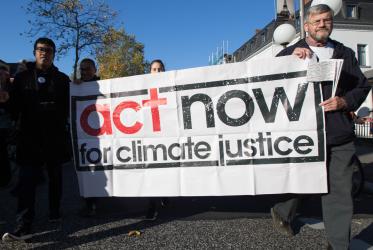Iglesia Metodista de Fiyi y Rotuma
The first Christian missionaries to Fiji were three Tahitian teachers of the London Missionary Society, in 1830. The Wesleyan Missionary Society (Methodist) from Australia began working in the island in 1835. In 1854, many notable chiefs of Fiji became Christian. Following these conversions, many people openly confirmed their faith in the gospel. As the church grew, Fijians went out as missionaries to the Solomon Islands, Papua New Guinea and North Australia. When British rule was established in Fiji in 1874, the government became the third strand in the Fijian consciousness, called Matanitu, along with the two other strands, the way of the land (Vanua), and Christianity (Lotu). For a century and a half, the Methodist Church in Fiji has enjoyed the close working together of these three strands.
Starting in 1879, large numbers of Indians were brought to Fiji by the British, to work as indentured labourers in the sugar cane industry. They came with their religion, language, culture, and customs. The Methodist Mission responded to this new challenge by setting up the Indian Mission in 1892. Towards the end of the 19th century the Methodist Church was very active in the field of education. A large number of Fijian ministers were trained. In 1964 the Methodist Church in Fiji became autonomous; in 1986, close to 75 percent of the indigenous Fijian population belonged to the Methodist Church. The Indian Methodists represent about 1.5 percent of the total membership of the church.
In 1987, Fiji suffered two military coups. These events were a turning point in the political history of the country, and caused a split in the Methodist Church, which became apparent in 1988. The conflict touched the basic understanding of the role of the church in Fiji's multiracial, multi-religious and multicultural society. A majority faction backed the movement against the Indian population in Fiji during and after the military coups, a minority denounced this as a Christian domination over against a non-Christian religion. The division was eventually repaired but it left the Methodist Church with a crisis of identity. An authentic and clear witness to the lordship of Christ is called for, in order for the church to recapture its mission. The church must become an instrument of peace, justice and unity in the multicoloured society of Fiji.
After the coup d'état of 2000, the Methodist Church in Fiji & Rotuma took the leading role in the formation of another Christian organization, called the Assembly of Christian Churches in Fiji (ACCF). There is a strong sense of mission within the ACCF member churches, to stand united and bring healing and transformation. It is encouraging to see that the churches, the state and the Vanua are all working together towards this common goal.
An important development in the preparation of clergymen and women has been the launching of BD and BM programmes in 2003-2004. Quality theological education of the clergy is part of the response of the church to the challenges which the pluralistic society of Fiji is facing.

